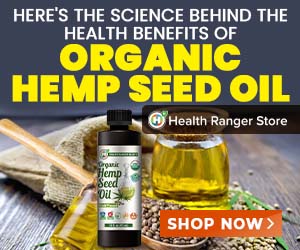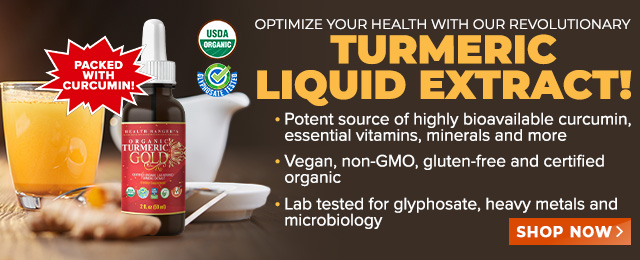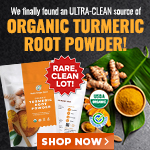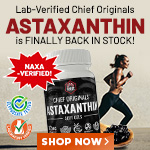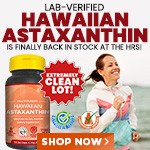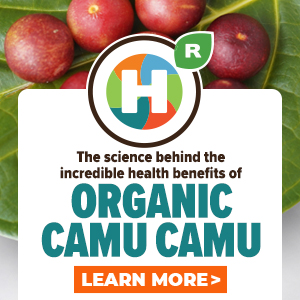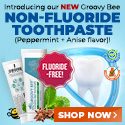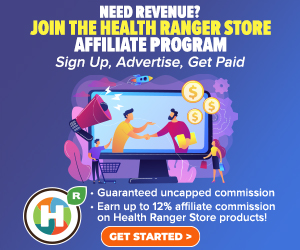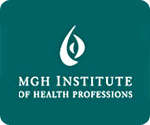
Interview with Elissa Ladd, creator of documentaries revealing off-label marketing deceptions of Big Pharma
 Saturday, October 03, 2009 Saturday, October 03, 2009by Mike Adams, the Health Ranger Editor of NaturalNews.com (See all articles...) Tags: drug marketing, health news, Natural News |
- Criminal referral requests filed against Fauci and top COVID officials in seven states
- Photonic revolution: New chips process data using light instead of electricity
- Dane Wigington exposes climate engineering as ‘All-Out Weather and Biological Warfare’
- Pfizer's RSV vaccine linked to preterm births as drug giant CONCEALED RISKS from pregnant women in unethical clinical trials
- Sen. Johnson demands COVID vaccine makers hand over all documents, communications, as evidence against their products reaches a climax
- Israeli lobbyists boast of controlling US national security policy in leaked AIPAC audio
- Aluminum, essential to vaccine science, also causes serious health conditions, including chronic fatigue, neurodegenerative diseases, macrophagic myofasciitis
- Analysis: The coming economic collapse, a mass uprising and Trump's three secret weapons to halt the growing revolt
- Aerosolized bioweapons? Strange “diploid biomasses” falling out of the sky in Florida captured under the microscope
- Tulsi Gabbard leads charge against the Biden regime’s global censorship of the 'Disinformation Dozen'
- DOGE unveils $400M unemployment fraud scandal: Toddlers, futuristic birthdates fuel outcry
- Chemtrails unveiled: How the CIA and Big Business are manipulating the weather for profit
- Shedding light on the dark side of MMR vaccines: How vaccinated individuals SPREAD MEASLES & put the vulnerable at risk
- Fauci is back in the limelight, and he’s busy promoting a future COVID or FLU pandemic
- Widespread social and economic unrest: Steve Quayle issues urgent financial warning of imminent asset collapse in new interview with Mike Adams
- Oats: A nutritional powerhouse for health and wellness
- U.S. lawmakers investigate Meta over alleged China collaboration
- Kiss Your Genetic Privacy Good-Bye! 23andMe Gets Green Light to Sell Your Intimate Genetic Details to Anyone They Want
- Aerosolized bioweapons? Strange “diploid biomasses” falling out of the sky in Florida captured under the microscope
- Widespread social and economic unrest: Steve Quayle issues urgent financial warning of imminent asset collapse in new interview with Mike Adams
- Tulsi Gabbard leads charge against the Biden regime’s global censorship of the 'Disinformation Dozen'
- Fauci is back in the limelight, and he’s busy promoting a future COVID or FLU pandemic
- Analysis: The coming economic collapse, a mass uprising and Trump's three secret weapons to halt the growing revolt
- Kiss Your Genetic Privacy Good-Bye! 23andMe Gets Green Light to Sell Your Intimate Genetic Details to Anyone They Want
- CLOT SHOT PLANDEMIC UNFOLDING: Fibrous, rubbery clots caused by covid injections have prion-like seeding activity
- Mike Adams releases country western hit single: Goin’ Back in Time is Comin’ Home
- DEATH by VACCINE or face PRISON time: Canadian Freedom Convoy leaders CONVICTED for protesting forced vaccination during the Covid Plandemic
- Tulsi Gabbard takes aim at censorship: Justice for the ‘Disinformation Dozen’
- How Israeli military-connected corporations are secretly controlling your online privacy
- European Court of Justice: Healthcare professionals who promoted or administered COVID-19 vaccines are CRIMINALLY LIABLE for any harm caused
- Defunding DEADLY mRNA jabs: Government funding for mRNA technology being scrutinized and sidelined until proven "safe and effective" for real
- U.S. lawmakers investigate Meta over alleged China collaboration
- Federal employees whine over DOGE's new directive requiring them to do a 5-point summary of weekly accomplishments
- U.S. approves new Russian ambassador as diplomatic thaw continues
- Trump administration poised to overhaul crypto regulations with new SEC leadership
- I Want My Bailout Money – new song and music video released by Mike Adams
- Newly released JFK files reveal Pentagon's role in creating Lyme disease and covid in the same lab
- Analysis: The coming economic collapse, a mass uprising and Trump's three secret weapons to halt the growing revolt
- Mike Adams releases country western hit single: Goin’ Back in Time is Comin’ Home
- MEDICAL BOMBSHELL: FDA admits Covid mRNA 'Vaccines' CAUSE CANCER
- Aerosolized bioweapons? Strange “diploid biomasses” falling out of the sky in Florida captured under the microscope
- Trump reverses course on Gaza plan, says “nobody is expelling Palestinians”
- Dr. Mike Yeadon releases 15-minute testimony - WATCH - about genocidal intent of COVID “vaccines”
- Kiss Your Genetic Privacy Good-Bye! 23andMe Gets Green Light to Sell Your Intimate Genetic Details to Anyone They Want
- 5 Simple steps to boost your brainpower: How to strengthen executive function in a distracted world
- A lack of integrity in Academia: Harvard professor found GUILTY of fraudulent research to promote CRT theory
- The Health Ranger releases “Vaccine Zombie” song and music video, using AI-animated zombies for the music video
- California's social media censorship law struck down: A victory for free speech or a threat to online safety?
- Rep. Nancy Mace introduces bill to ban biological males from female facilities on federal property
- EPA advisor admits the agency is funneling billions to climate groups ahead of Trump’s return to White House
- Survival 101: Effective EMF blocking techniques
- OpenAI whistleblower who dissented against how the company trained ChatGPT found dead
- Space war brewing? Russia threatens to destroy Starlink satellites
- European Court of Justice: Healthcare professionals who promoted or administered COVID-19 vaccines are CRIMINALLY LIABLE for any harm caused
- Red Cross issues warning to stop blood plasma donations from vaccinated people
- Scientists confirm: GENIUS brain function can be spontaneously unleashed in humans without any apparent cause
- EPA advisor admits the agency is funneling billions to climate groups ahead of Trump’s return to White House
- HYSSOP: What research reveals about the health benefits of this ancient holy herb
- Two containers with completed ballots fall out of truck in Florida
- Newly released JFK files reveal Pentagon's role in creating Lyme disease and covid in the same lab
- Global leaders unite to clamp down on “misinformation” with UN-backed Cascais Declaration
- Fully vaccinated about to see “tsunami” of illness and death, warns virologist
- BREAKING: 2025 NDAA authorizes mandatory military draft of WOMEN across America… as Pentagon pursues global NUCLEAR war with both Russia and China at the same time
- Michael Yon warns of a ZIONIST TAKEOVER in Trump’s second administration
- Ozempic and Wegovy weight loss drugs are injectable LIZARD VENOM PEPTIDES that may unleash a devastating wave of organ failure… side effects align with symptoms of SNAKE BITES
- The Health Ranger releases “Vaccine Zombie” song and music video, using AI-animated zombies for the music video
- BOMBSHELL: DNA testing kits are a SCAM to develop ethnic-specific bioweapons
- Mike Adams releases country western hit single: Goin’ Back in Time is Comin’ Home
- Israeli soldiers accused of even more torture and abuse in the West Bank
- These 13 countries just signed an agreement to engineer a global FAMINE by destroying food supply
- NASA admits that climate change occurs because of changes in Earth’s solar orbit, and NOT because of SUVs and fossil fuels
- RFK Jr. clears key hurdle: Sen. Susan Collins backs controversial HHS nominee, signaling a new era for health policy
Mike: Could you give us the short version of what you have done and how these documentaries came to be?
Elissa: Well, it was born from a grant program called the "Attorney General Consumer & Prescriber Education Grant Program." I know that's a mouth full, but basically that particular grant program arose from a very large settlement that Pfizer, the pharmaceutical company, had to pay as a result of illegal marketing activities of a drug.
One of their subsidiaries, or a company that they I guess purchased, was actually promoting the drug. I am not exactly sure what the legal kind of relationship was, and it was based on the illegal marketing activities of the drug Neurontin otherwise known as the generic version of Gabapentin.
What happened is that they were marketing a particular drug originally approved by the FDA as a seizure drug and they were marketing it for purposes other than seizures. They were marketing the drug for many, many other purposes. For example headaches, chronic pain, and a lot of different other indications and really that kind of activity is illegal. This is called off-label marketing. They're marketing for a use other than what was approved by the FDA.
That's where the grant arose from, and this particular program's intention was to educate prescribers. The first arm of it is to educate prescribers about pharmaceutical marketing – educate them about how pharmaceutical marketing and promotional activities could affect prescribing decisions.
Mike: Now when you say prescribers, of course, you mean typically the MDs who are writing out those prescriptions.
Elissa: Right, but the program actually funded about 28 programs through this particular grant program. Most of the programs were directed at physicians, medical schools, health services, researchers. We were the only actually what you'd call advanced practice nursing program that was funded, because nurse practitioners prescribe medications as well.
Mike: Oh, okay. Now how much money was in the settlement to begin with?
Elissa: [It was several million dollars.] You can find that out on the Web if you go to that particular website, the Attorney General Consumer Prescriber Education Grant Program, you could probably find that there.
Mike: Okay and then you applied for a grant for a portion of those funds, correct?
Elissa: Correct, right.
Mike: Can you reveal how much you or your organization was awarded?
Elissa: Yes that's fine. Most of the organizations were awarded about $400,000 to develop these programs. The other thing I just did want to mention also is that actually this grant is actually quite extensive, and so it not only funded many, many different kind of similar grant programs across the country, but also they're going to be funding either several very large consumer education grant programs as well. Those have not been announced yet but there is another arm to the funding as well.
A documentary on the truth about drugs, courtesy of Pfizer!
Mike: I see. Now what is interesting about this in what you have done is that essentially you have used this money from the drug companies to educate people about how manipulative drug companies can be in their marketing. Is that an accurate assessment?Elissa: Right, that's essentially it and again it is to educate prescribers about what goes on and how marketing works and actually how much money is spent on it and whether the money is spent wisely on the part of the pharmaceutical companies. The money that they spend… I've seen quotes between $12 and $15 billion a year annually on marketing. Therefore, they would not be spending that much money if it did not work essentially.
Mike: That's one of the major conclusions of your research and your documentary. What else did you find that's interesting to consumers?
Elissa: Well I think the whole consumer piece and actually what we have now where they're documentary modules so they're somewhat short bursts of information. There are four modules. They're each about 20 minutes long and essentially what they cover is a lot of different things in terms of how drugs are approved, pharmaceutical marketing, the ethics and conflict of interest issues and strategies to improve practice.
In terms of consumers, we actually in one section of the modules included information about direct consumer advertising as that we are all rather bombarded with many different commercials in many different forms for drugs. We rather talked about that and especially about how many times patients come to prescribers and really ask for a drug that they just saw on television or saw in a magazine. They think that drug is going to help them.
Many times the drugs though that are marketed very heavily on television, not only are they expensive and newer drugs many times are marketed in a way that kind of create diseases or exaggerate diseases that don't really exist. That's called "Disease-mongering." That's something we also talk about in the modules.
Mike: Wow that's very interesting. We have created the disease-mongering engine on our website where you can invent your own fictitious diseases.
Elissa: Oh, wow, really.
Mike: Yes, are you familiar with that?
Elissa: Well actually, I saw another thing, and I cannot remember where it was that someone else did the same kind of thing. They created a disease and then actually everybody thought it was real. It was on the Web or something.
Mike: Oh, yes. That woman created an entire website about one fictitious drug.
Elissa: Right, oh, yes, right.
Mike: Yes, it was called "Havitol."
Elissa: Yes, exactly. I actually use that as an example. I teach advanced pharmacology and I use that for my students. I said, "What do you think about this drug, would you use it?" I mean I was kind of like playing devil's advocate.
Mike: These modules that you are describing, these can be viewed as videos, right?
Elissa: Right, right they're all somewhat separate. Kind of getting back to the whole intention of the project though the thing about this particular issue is I think with all prescribers. In fact, I think this whole issue gets at vulnerability that we have as healthcare providers who want to help our patients. We want to do the right thing.
Sometimes we are influenced in ways that we don't really understand or we are not aware of so we wanted to kind of present this information to educate prescribers about the whole process in a way that was not going to kind of make them feel badly about themselves but just kind of would be provocative – thought-provoking.
I also really wanted to be somewhat kind of engaging and entertaining and have a few laughs kind of thing as well because I think that laughter goes very far in terms of breaking down defenses. We did include kind of humor as kind of skits and little animations in there as well.
Mike: Where can people view these videos?
Elissa: They're on our website. The website is www.PerxInfo.org.
Mike: And they can find them right there from the…?
Elissa: Right, they're right there. You just click on documentary modules and then actually they're streamed through Google videos. You just click on it. You click on their little play section at the bottom of the video picture and then you can play each one. Each one is about 20 minutes long.
We are also in the process of adapting the four documentary modules into like a shorter version of about say maybe half an hour so that could be used in different venues as well.
Mike: Well that's something we would love to publish the video. In fact, we are about to roll out a video technology for hosting this kind of thing, and we would love to publish it too.
Elissa: Oh yes that would be great. Actually the material is all public domain so anyone can use it. That was a big stipulation of the grant. That's why it is kind of out there on the Web. It can be used however so you are welcomed to use it.
Mike: That's nice to hear. Do you have any estimation of how many people have viewed these modules at this point?
Elissa: I really have no idea actually. The other part of this particular program is we are doing like an intervention study so we are going to have the study participants actually view the modules on our website as well. At this point, I am not quite sure.
Mike: How are you distributing these modules to physicians?
Elissa: Well actually, we are going to be sending out a mailing to medical schools and nursing schools as well as physician assistant schools across the country. Physician assistants also prescribe medication.
Waking up to the reality of Big Pharma influence on our healthcare system
Mike: Okay now I have another question for you. To spearhead this kind of project requires, I think, a lot of clarity of thought and a fair degree of skepticism and it is not something that all of your colleagues might share. How did you arrive at this point where you felt compelled to pursue this skepticism about pharmaceutical marketing?Elissa: That's a very good question. Actually, I have a couple of things. First of all I've been a nurse practitioner, practicing nurse practitioner for about 20 years and I had seen a couple of things. I had seen this significant up kick in offices that I had been working in of pharmaceutical detailing so the pharmaceutical representative coming to the office.
I also noticed a significant up kick in the amount of food they were coming with and lunches, dinners, donuts, muffins, Starbucks and literally also talking to colleagues I had realized a lot of practices were actually receiving food almost every single day.
When you kind of step back and wonder about this it was obvious that what they were trying to do, and they were trying to market a particular drug, but I was really kind of thinking to myself well is this really an above board kind of practice…
Where is this money coming from? How is the money that's being spent on these marketing endeavors really affecting healthcare? In particular, how is it affecting the patients that I see, and I noticed at the same time many times patients are having a very difficult time paying for their medications. Even if they had health insurance, they had to pay very high co-pays especially for these newer highly marketed expensive drugs.
Many times patients cannot afford a co-pay of $50 for four or five medicines a month and then it came down to the question: would they get the medicines at all, number one? And then as their healthcare insurance, their premiums were going up they would many times have to drop their insurance because they could not afford the premiums.
That's a multi-factorial issue but certainly the cost of pharmaceuticals is certainly contributing to the rise in premiums. I kind of looked at the whole situation and was very troubled by what I was seeing.
At the same time, we have rather developed this magic pill kind of culture where people feel like they're not doing anything for their health or they're not going to get better unless they take a pill. A lot of this is fed by that direct to consumer marketing that we see on television.
Instead of people relying on the things that work like lifestyle issues, exercise and eating well and not smoking and wearing a seatbelt, they were relying on medicines to make them healthy.
Direct to consumer advertising is a harmful practice
Mike: As you are well aware, the FDA approved or legalized direct to consumer advertising of prescription drugs in late 1997 or early 1998 and the United States today is I think the only country that allows this to go on, at least in terms of first world nations. Do you think that we should consider going back to pre-1997 where pharmaceutical companies cannot advertise directly to consumers?Elissa: Well there are many different thoughts on this particular issue. Some people think that direct to consumer ads are good because they encourage a dialogue between a patient and a provider in a healthcare setting in terms of something that was really bothering them. I think that that may be true somewhat, but I think that overall, they're very harmful to our system in terms of how it affects the cost of pharmaceuticals in general.
I also think that they're very harmful to patients because many times… many times people don't really have the… I want to choose the right word here. Don't have the, not sophistication, but they kind of like have difficulty understanding the marketing process.
If they don't really understand the marketing process, what they may not realize is that they're being kind of manipulated to think that they're sick or that there is something wrong with them when in fact there may not be anything wrong with them.
In a sense, I think that companies are trying to manipulate the patient's perception of their own health. That's why they always say go ask your doctor, go ask your doctor, but they don't really even know what is the matter with them, do you know what I mean?
Mike: Right.
Elissa: It just makes them think that there is something the matter with them.
Mike: Well and it sounds like you are saying that pharmaceutical companies are trying to market drugs to people who don't need them.
Elissa: Right, I think that many kind of conditions in terms of this whole disease mongering issue are exaggerated or they create diseases that have very tenuous scientific basis.
Mike: Can you give any examples of that?
Elissa: Well social anxiety disorder is something that I question personally. From what I understand that means that you are nervous or don't like to talk in front of groups of people. I think that's a very common feeling. You know what I mean, you are shy and I am not sure taking a medicine is the right thing to do for that.
I think there are other therapeutic avenues you can go down in terms of treatment. If you are indeed very anxious in social situations, I don't think it would necessitate a drug or taking a pill every single day necessarily.
Hope for the future
Mike: Right. Where do you see this all heading? You were not the only one who is now calling for radical reforms. Well I am not sure you are calling for radical reforms, yet others are. Where do you think this is likely to end up in the next few years?Elissa: Well my gut feeling about you know just based on the activity that I see going on in terms of a lot of the similar grant programs that are going on across the country as well as some other initiatives.
I think… and the other interesting thing is I think there has also been a lot of press in the mainstream press like New York Times, Wall Street Journal not only about marketing but also about questionable ties between industry, the pharmaceutical industry and the research process, the clinical trial process, etc., and I honestly think that probably in another five to ten years our culture is really changing. It is starting to change around this pharmaceutical issue.
I would really like to see us just taking a little healthier perspective on medications. I mean we have been probably cured of some infectious disease or we were able to manage a chronic disease because of the drugs that we have, but I think that we have also kind of tipped to the other side in terms of really being kind of overusing pharmaceuticals.
I mean we have seen that with adolescents. Adolescents now abuse prescription drugs, not just illegal drugs. I think that there are many people looking at this from many different angles and I think we are really kind of heading towards, say, a tipping point in terms of how industry markets its products.
The future of the FDA / Big Pharma dynamic
Mike: Well what do you say about the pharmaceutical industry being so wealthy and so powerful and so tied into influence at the FDA and legislators? How does that situation ever unwind given the level of influence?Elissa: Well I think some of it has to do with the political scenario that we happen to be living in, and I think that it may change. I think that those kind of processes could have the potential of changing depending on that is say the prevailing administration. I think it is a huge issue.
I think it is problematic because of the amount of money that the pharmaceutical industry has and uses – especially in Congress. From what I understand, they're the largest lobby in Congress. They were clearly instrumental in passing say Medicare Part D and I think that this is another kind of aspect of this, and I think that really has not been dealt with very seriously to this point.
I am not sure how effective we can be in terms of that, but I also think that many times change starts from a grass roots level. I am somewhat interested in kind of like working with consumers and patients to understand that drugs are life saving, but they may not always be necessary. If they're necessary maybe it is best to choose a generic drug as opposed to one of the newer, more expensive drugs because we know actually we are familiar with our safety profile, and they have been around a long time.
Mike: Good advice. Well those are all the questions that I had for you on this. Is there anything else that you'd like to add?
Elissa: I think that we pretty much covered everything. I think they were very good questions, very interesting.
Mike: Well I am really glad that you are doing this project by the way. Kudos to you for having the courage to put something like this together.
Drug marketing at FETCH.news
Get independent news alerts on natural cures, food lab tests, cannabis medicine, science, robotics, drones, privacy and more.
More news on drug marketing
 About the author:Mike Adams (aka the "Health Ranger") is a best selling author (#1 best selling science book on Amazon.com) and a globally recognized scientific researcher in clean foods. He serves as the founding editor of NaturalNews.com and the lab science director of an internationally accredited (ISO 17025) analytical laboratory known as CWC Labs. There, he was awarded a Certificate of Excellence for achieving extremely high accuracy in the analysis of toxic elements in unknown water samples using ICP-MS instrumentation. Adams is also highly proficient in running liquid chromatography, ion chromatography and mass spectrometry time-of-flight analytical instrumentation.
About the author:Mike Adams (aka the "Health Ranger") is a best selling author (#1 best selling science book on Amazon.com) and a globally recognized scientific researcher in clean foods. He serves as the founding editor of NaturalNews.com and the lab science director of an internationally accredited (ISO 17025) analytical laboratory known as CWC Labs. There, he was awarded a Certificate of Excellence for achieving extremely high accuracy in the analysis of toxic elements in unknown water samples using ICP-MS instrumentation. Adams is also highly proficient in running liquid chromatography, ion chromatography and mass spectrometry time-of-flight analytical instrumentation.
Adams is a person of color whose ancestors include Africans and Native American Indians. He's also of Native American heritage, which he credits as inspiring his "Health Ranger" passion for protecting life and nature against the destruction caused by chemicals, heavy metals and other forms of pollution.
Adams is the founder and publisher of the open source science journal Natural Science Journal, the author of numerous peer-reviewed science papers published by the journal, and the author of the world's first book that published ICP-MS heavy metals analysis results for foods, dietary supplements, pet food, spices and fast food. The book is entitled Food Forensics and is published by BenBella Books.
In his laboratory research, Adams has made numerous food safety breakthroughs such as revealing rice protein products imported from Asia to be contaminated with toxic heavy metals like lead, cadmium and tungsten. Adams was the first food science researcher to document high levels of tungsten in superfoods. He also discovered over 11 ppm lead in imported mangosteen powder, and led an industry-wide voluntary agreement to limit heavy metals in rice protein products.
In addition to his lab work, Adams is also the (non-paid) executive director of the non-profit Consumer Wellness Center (CWC), an organization that redirects 100% of its donations receipts to grant programs that teach children and women how to grow their own food or vastly improve their nutrition. Through the non-profit CWC, Adams also launched Nutrition Rescue, a program that donates essential vitamins to people in need. Click here to see some of the CWC success stories.
With a background in science and software technology, Adams is the original founder of the email newsletter technology company known as Arial Software. Using his technical experience combined with his love for natural health, Adams developed and deployed the content management system currently driving NaturalNews.com. He also engineered the high-level statistical algorithms that power SCIENCE.naturalnews.com, a massive research resource featuring over 10 million scientific studies.
Adams is well known for his incredibly popular consumer activism video blowing the lid on fake blueberries used throughout the food supply. He has also exposed "strange fibers" found in Chicken McNuggets, fake academic credentials of so-called health "gurus," dangerous "detox" products imported as battery acid and sold for oral consumption, fake acai berry scams, the California raw milk raids, the vaccine research fraud revealed by industry whistleblowers and many other topics.
Adams has also helped defend the rights of home gardeners and protect the medical freedom rights of parents. Adams is widely recognized to have made a remarkable global impact on issues like GMOs, vaccines, nutrition therapies, human consciousness.
In addition to his activism, Adams is an accomplished musician who has released over a dozen popular songs covering a variety of activism topics.
Click here to read a more detailed bio on Mike Adams, the Health Ranger, at HealthRanger.com.
Take Action: Support Natural News by linking to this article from your website
Permalink to this article:
Embed article link: (copy HTML code below):
Reprinting this article:
Non-commercial use OK, cite NaturalNews.com with clickable link.
Follow Natural News on Facebook, Twitter, Google Plus, and Pinterest
Science News & Studies
Medicine News and Information
Food News & Studies
Health News & Studies
Herbs News & Information
Pollution News & Studies
Cancer News & Studies
Climate News & Studies
Survival News & Information
Gear News & Information
News covering technology, stocks, hackers, and more



"Big Tech and mainstream media are constantly trying to silence the independent voices that dare to bring you the truth about toxic food ingredients, dangerous medications and the failed, fraudulent science of the profit-driven medical establishment.
Email is one of the best ways to make sure you stay informed, without the censorship of the tech giants (Google, Apple, Facebook, Twitter, YouTube, etc.). Stay informed and you'll even likely learn information that may help save your own life."
–The Health Ranger, Mike Adams











